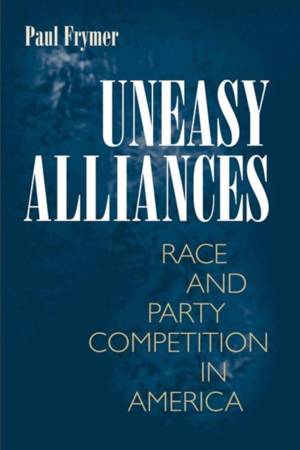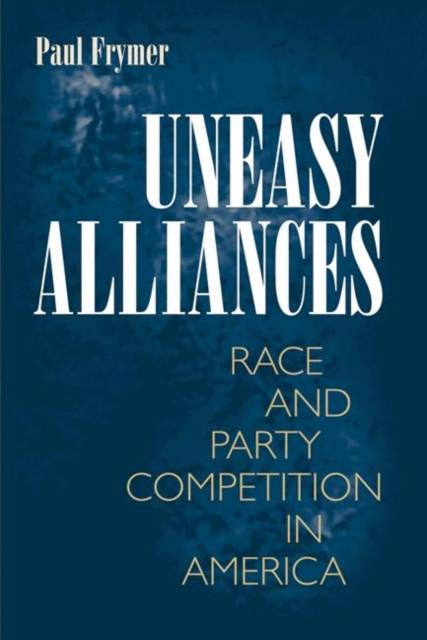
- Afhalen na 1 uur in een winkel met voorraad
- Gratis thuislevering in België vanaf € 30
- Ruim aanbod met 7 miljoen producten
- Afhalen na 1 uur in een winkel met voorraad
- Gratis thuislevering in België vanaf € 30
- Ruim aanbod met 7 miljoen producten
Omschrijving
Uneasy Alliances is a powerful challenge to how we think about the relationship between race, political parties, and American democracy. While scholars frequently claim that the need to win elections makes government officials responsive to any and all voters, Paul Frymer shows that not all groups are treated equally; politicians spend most of their time and resources on white swing voters--to the detriment of the African American community. As both parties try to attract white swing voters by distancing themselves from blacks, black voters are often ignored and left with unappealing alternatives. African Americans are thus the leading example of a "captured minority."
Frymer argues that our two-party system bears much of the blame for this state of affairs. Often overlooked in current discussions of racial politics, the party system represents a genuine form of institutional racism. Frymer shows that this is no accident, for the party system was set up in part to keep African American concerns off the political agenda. Today, the party system continues to restrict the political opportunities of African American voters, as was shown most recently when Bill Clinton took pains to distance himself from African Americans in order to capture conservative votes and win the presidency. Frymer compares the position of black voters with other social groups--gays and lesbians and the Christian right, for example--who have recently found themselves similarly "captured." Rigorously argued and researched, Uneasy Alliances is a powerful challenge to how we think about the relationship between black voters, political parties, and American democracy. In a new afterword, Frymer examines the impact of Barack Obama's election on the delicate relationship between race and party politics in America.Specificaties
Betrokkenen
- Auteur(s):
- Uitgeverij:
Inhoud
- Aantal bladzijden:
- 248
- Taal:
- Engels
- Reeks:
Eigenschappen
- Productcode (EAN):
- 9780691148014
- Verschijningsdatum:
- 5/09/2010
- Uitvoering:
- Paperback
- Formaat:
- Trade paperback (VS)
- Afmetingen:
- 152 mm x 234 mm
- Gewicht:
- 385 g

Alleen bij Standaard Boekhandel
Beoordelingen
We publiceren alleen reviews die voldoen aan de voorwaarden voor reviews. Bekijk onze voorwaarden voor reviews.











